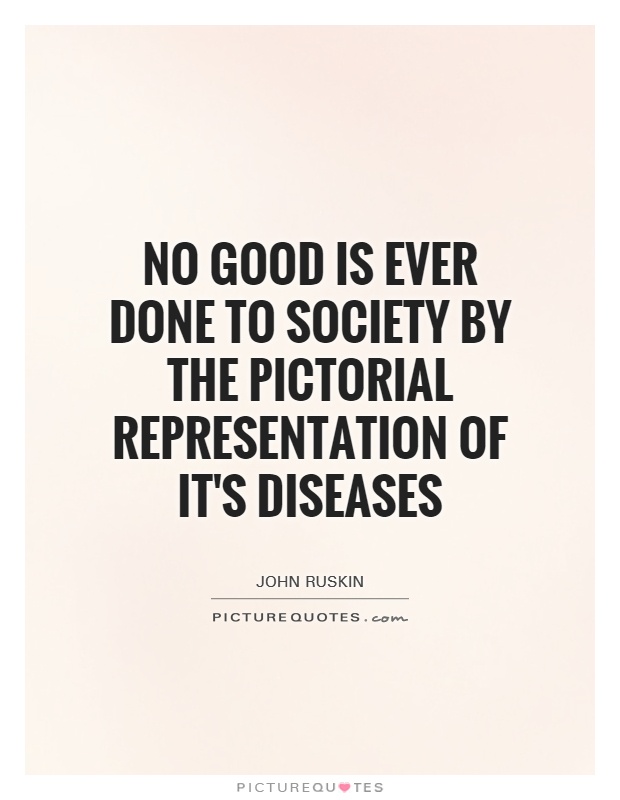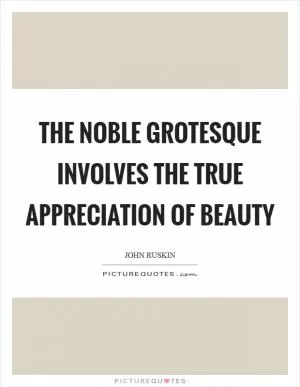No good is ever done to society by the pictorial representation of it's diseases

No good is ever done to society by the pictorial representation of it's diseases
John Ruskin, a prominent English art critic and social thinker of the 19th century, was known for his strong opinions on the role of art in society. One of his most famous quotes, "No good is ever done to society by the pictorial representation of its diseases," reflects his belief that art should uplift and inspire rather than focus on the negative aspects of society.Ruskin believed that art had the power to shape the moral and spiritual values of a society. He argued that by focusing on the beauty and goodness in the world, artists could inspire people to strive for a better, more harmonious society. In his view, art should serve as a reflection of the divine order and beauty of the natural world, rather than dwelling on the ugliness and suffering that existed in society.
Ruskin's criticism of the pictorial representation of diseases can be seen as a rejection of the prevailing trend of social realism in art during his time. Many artists of the 19th century, such as Gustave Courbet and Honoré Daumier, sought to depict the harsh realities of poverty, injustice, and suffering in their work. While these artists believed that their art could raise awareness and provoke social change, Ruskin saw their focus on the negative aspects of society as ultimately harmful.
Instead, Ruskin advocated for a more idealized and uplifting form of art that celebrated the beauty of nature, the virtues of humanity, and the divine order of the universe. He believed that by creating art that inspired people to see the world in a more positive light, artists could help to cultivate a more moral and harmonious society.












 Friendship Quotes
Friendship Quotes Love Quotes
Love Quotes Life Quotes
Life Quotes Funny Quotes
Funny Quotes Motivational Quotes
Motivational Quotes Inspirational Quotes
Inspirational Quotes